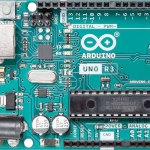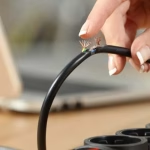For a human, it doesn’t get much worse than a rat in your home.
Rats carry diseases such as the bubonic plague, salmonella, and listeria, to name a few. They’ll chew through anything and can cause significant damage to your house, furniture, and food.
But do rats carry diseases? What exactly are their habits, and what is the best way to get rid of them? What diseases can they carry, and can they infect us?
We’ve created this pest control guide to answer all of your questions and more. Read along to learn more!
Do Rats Carry Diseases?
Some of these diseases include leptospirosis, salmonella, lymphocytic choriomeningitis (LCMV), typhus, and the Hantavirus. Rats are also known to transmit ticks and fleas that can carry other rodent diseases. Rats are prolific breeders, so their populations can escalate quickly if they get into our homes or yards.
That’s why it’s so important to be aware of rats and their behaviors and take steps to prevent them from entering our homes or workplaces. Appropriate hygiene and sanitation habits can also help protect us from the diseases that rats may carry.
Signs of a Rat Problem
Signs of a rat problem include droppings around the areas where rats are living, such as in attics, cupboards, and basements. Rats can be heard scratching, squeaking, or scurrying through walls or ceilings.
You may also notice rat burrows around your home or property, often near compost piles, woodpiles, or other areas where they can find food and shelter.
If a rat has died in your home, there may be a foul smell. Rats can also chew through wires or wood, which can be a fire hazard. Additionally, if you notice rats out in the open during the daylight, chances are your problem is serious. If you suspect a rat infestation, it’s best to contact a professional rodent control company for help.
How to Prevent Rodents
You should store all food, including pet food, in sealed containers and properly dispose of any waste material containing food. Be sure to keep your kitchen and pantry areas clean, sweep floors, and wipe countertops with a disinfectant. Additionally, gaps and holes should be sealed, both inside and outside of the home, to prevent rodents from entering.
You may also consider installing a rat-proof fence around your yard and home. Trim back vegetation, as this can provide shelter for mice and rats. Also, address any water sources attracting rodents, such as leaky faucets or pipes, as well as use traps or baits to capture any existing rodents.
How to Clean Up After a Rat Issue
It is important to be cautious at all times and take the necessary safety precautions, such as wearing protective clothing and a face mask to avoid contact with droppings or urine. All areas infested with rats should be vacuumed using a HEPA filter, and the vacuum bag should be immediately discarded.
All carpets, furniture, and other items should be thoroughly cleaned and disinfected. Any rodent droppings should be immediately removed, bagged, and disposed of far away from the home. Additionally, all food should be stored in airtight containers in the pantry or other suitable areas.
All-access points from the outside should be blocked and sealed to prevent future infestation. Finally, if the home has an attic, it is important to take steps to ensure that rats cannot gain access to it.
Common Misconceptions About Rat-Carried Diseases
One of the most common misconceptions about rat-carried diseases is that they can spread quickly and easily. This is simply not true; in fact, even if the rat carries the disease, there is usually very low risk of it spreading to humans. Rats can carry various diseases, but many of these merely affect other animals or are hidden from humans.
In addition, most of these diseases only become transmittable when there is direct contact between the rat and the human, such as if the rat were to bite the human or if the rat were to come into contact with an open wound.
Many rat-carried diseases require immediate medical attention within 24 to 48 hours. Unless an individual seeks medical attention within this timeframe, the risks of catching the disease are minimal.
How Can Professional Pest Control Help With Rat Removal?
One of the most common methods used is baiting. This involves setting up bait stations, which contain poison, in areas where rats are likely to be found. Professional pest control technicians can also use traps to capture live rats for removal.
Additionally, pest control companies may seal up gaps and openings in the home that provide access points for rats. Once the rats are gone, the pest control company may also provide ongoing preventative services such as routine inspections and maintenance to help keep rats from returning.
Professional pest control experts have the knowledge and experience to effectively remove and handle rats with safe, effective methods, which can help give you peace of mind.
Effectiveness of Rat Repellents
Repellents are generally seen as safe alternatives to lethal traps and poisons. It works by emitting certain sounds and smells that irritate rats and make them feel that their environment is unpleasant; thus, they will leave. Different methods of using rat repellents are available.
You can spray liquid repellents onto surfaces, apply powder repellents to areas rats are known to frequent, and spread granules around your home. Repellents can be effective in keeping rats away, but it’s important to remember that they are just a deterrent. They will not permanently eradicate rats from the area.
Avoid These Rodents Today
So, do rats carry diseases? Yes, rats do carry diseases. Not only can they make you sick, but they damage property too. The best way to get rid of rats and ensure your health and safety is to call a professional pest control team who can help to identify and prevent further infestations.
Timely action is important to avoid any unwanted consequences, so call today for a free inspection.
If you find this helpful and want to read more great content, check out our latest blog posts now!

















